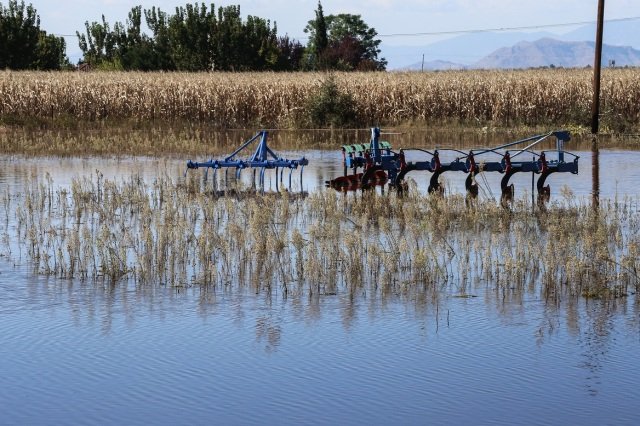After OPEKEPE, it is now ELGA’s turn. A special task force of the Ministry of National Economy and Finance is targeting those who received legitimate payments and those who pocketed thousands of euros without suffering real damage, with inspectors now combing through every file and database.
The ministry has decided to open ELGA’s records, with the Fiscal Audit Committee forming a special team to scrutinize all “emergency” compensations distributed to farmers and livestock breeders. The audit concerns both the summer 2023 wildfires and the “Daniel” and “Elias” floods in September, as well as cases of producers who claimed special viability problems to secure funds.
Inspectors will enter ELGA, OPEKEPE, and the services of the Ministry of Rural Development that manage registries for pigs, poultry, and beekeeping operations. The audit will take place in September, with four days of on-site inspections and two days of administrative checks at the General Directorate of Co-Financed Program Controls, while remote access tools will also be used to avoid delays.
The key question auditors are tasked with answering is whether the distributed subsidies were based on ELGA’s official findings or handed out “blindly.” If discrepancies are found, this could lead to financial charges and reimbursement of funds, at a time when the ministry wants to demonstrate to Brussels that EU funds are managed transparently. The inspections also come at a moment when the government has pledged strict oversight of subsidies, as in recent years complaints about “fake subsidies” and files approved without solid documentation have multiplied.
The Fiscal Audit Committee, which is leading the effort, has warned that it will not limit itself to the formalities but will thoroughly investigate both accounting data and electronic registries. This means that damage declarations will be cross-checked with subsidy payments as well as with production and livestock data. For example, under the microscope are:
- farmers who claimed crop destruction,
- livestock breeders who reported animal losses,
- beekeepers who declared hive losses.
If it is proven that the data does not match the actual damage, then procedures for reimbursement of funds will be initiated.
At the same time, inspectors will also audit the services of the Ministry of Rural Development that maintained the registries and submitted recommendations for decisions. The goal is to determine whether proper coordination was in place and whether EU Commission regulations were applied correctly, or if gaps allowed room for errors and omissions.
Ask me anything
Explore related questions

